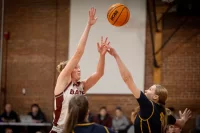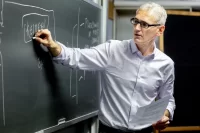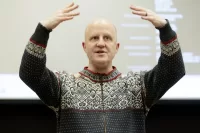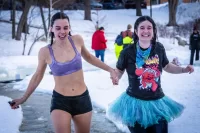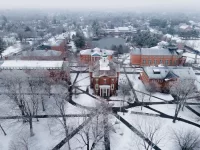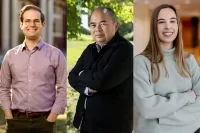
Bates is welcoming a large group of new faculty this year. Seventeen tenured or tenure-track professors will join the college over the course of the 2025-2026 academic year. Bates News will introduce them in groups over this semester.
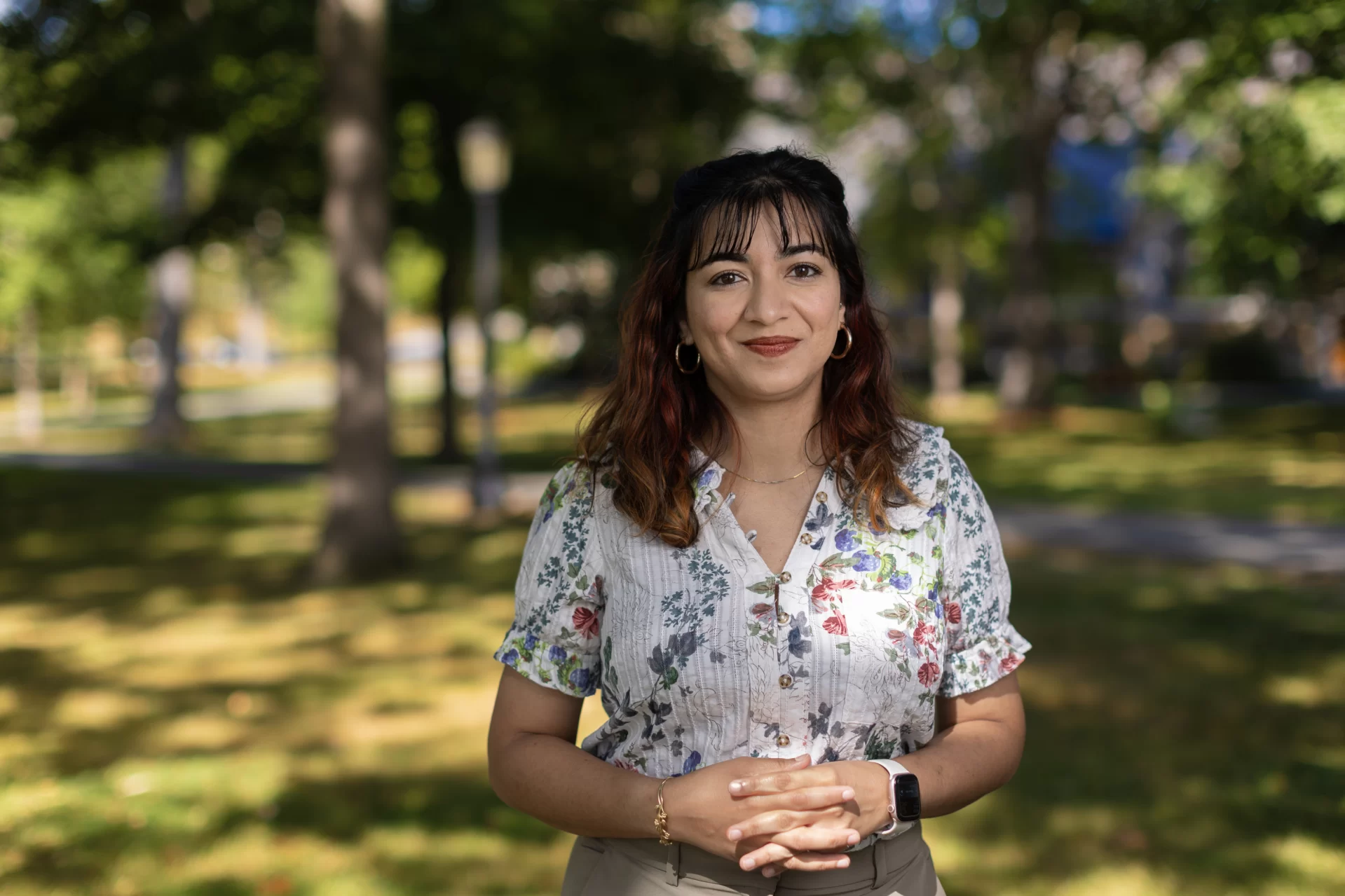
Ifrah Shahi, assistant professor of biology
Focus of teaching and scholarship:
I will be teaching microbiology classes, and my research focuses primarily on bacteriology. In particular, my lab will be researching the bacteria Kingella kingae, which causes bone and joint infections in children. I, along with students in my lab, will be investigating how K. kingae responds to and behaves in the presence of factors it might encounter in the human body during the course of infection — factors such as components of blood and the extracellular matrix. In addition to working on these questions in the lab, students in my “Lab-Based Biological Inquiry” classes will also start playing around with these ideas as part of their class research projects!
What are you most looking forward to in the coming year at Bates?
I’m really looking forward to teaching new classes and new materials, as well as working with students in my lab and getting some fun research done. But more than that, I’m really excited about being a part of the Bates community. Being at Bates is a real throwback to my own time as an undergraduate in a small liberal arts New England college (Mount Holyoke College), and I’m thoroughly exhilarated about the opportunity to be for my students the same kind of a mentor that my undergraduate professors were for me.
What is your favorite part of teaching?
First and foremost, the best part about teaching is getting to meet new students — I always come out of a semester feeling invigorated by all the amazing student interactions, learning new things, and creating long-lasting connections with the students. Secondly, I always love the active part of teaching: figuring out new ways to teach science that interests, excites, and intrigues students. I am very fond of bacteria, and imparting that affection for microbes and microbial research to students is always a wonderful full-circle moment for me.
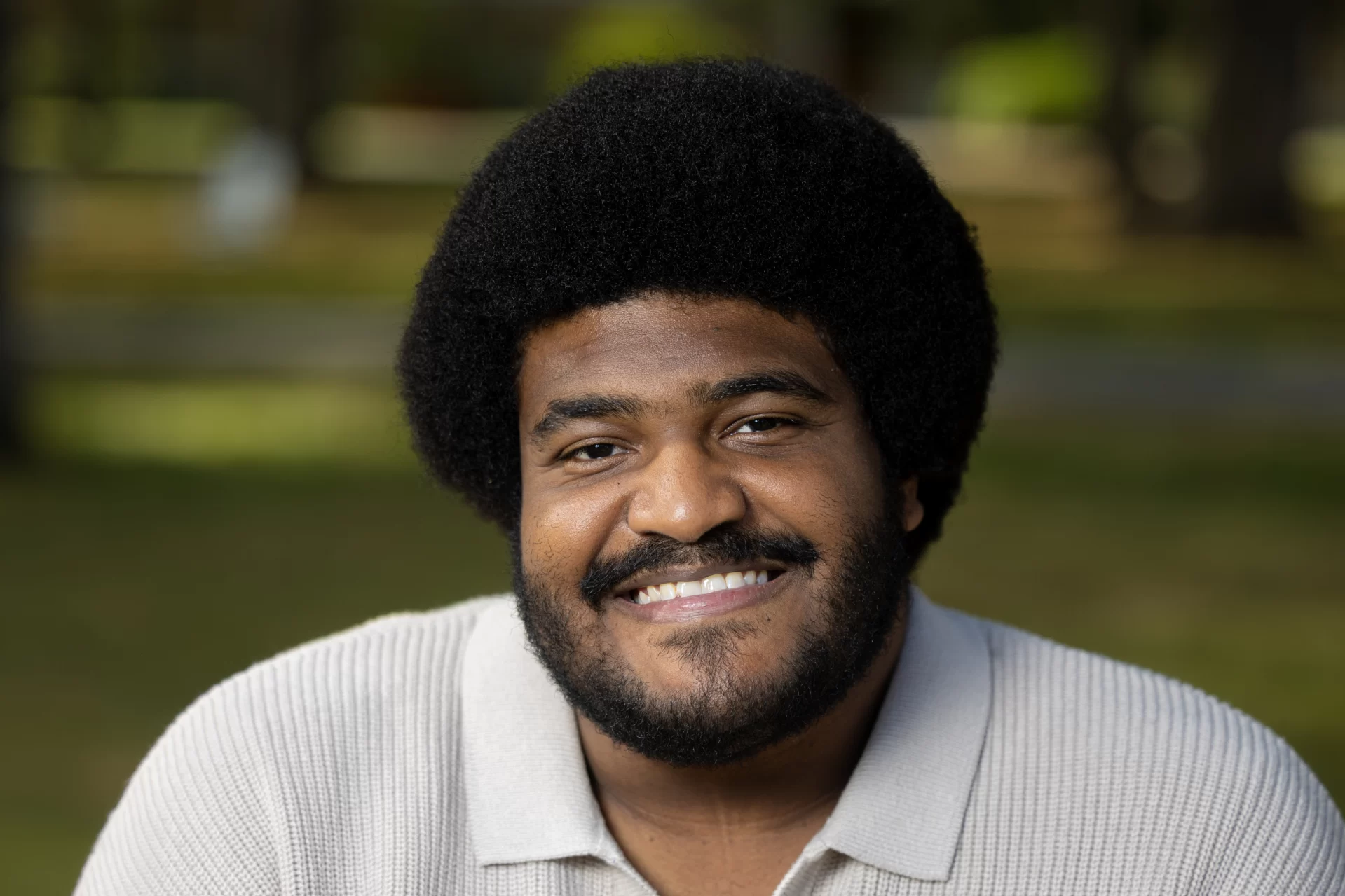
Anderson C. Moss-Weaver, assistant professor of religious studies
Focus of teaching and scholarship:
My teaching and scholarship are relatively wide. My research focuses on how 20th-century African American poets and novelists create Black religious worlds that are grounded in the creation of sacred Black collective memory and the mystical sensations and experiences of freedom. I often joke that I am really interested in how Black people imagine what liberation feels like, smells like, tastes, and sounds like. My research is partially interested in African-American uses of East and South Asian religious and philosophical thought for the purposes of thinking through liberation from unique and alternative angles apart from the standard Western canon.
Here at Bates, I’m excited to teach courses in African American religious traditions and a course on the concept of “spiritual but not religious.” I also hope to develop a seminar that helps students think critically about the complex and intertwined history of American evangelicalism and Christian nationalism. Finally, I hope to integrate my passion for TTRPGs (tabletop role-playing games) and fantasy/sci-fi into a class focused on religion, worldbuilding, and speculative fiction. I hope that students can work together to build their own fantasy world while learning how authors, from J.R.R. Tolkien to Octavia Butler, created their literary worlds by drawing on mythology and religions from our own world.
What are you most looking forward to in the coming year at Bates?
You know, I went to a small liberal arts college when I was in undergrad, and I loved it whenever a professor would come to campus events and lectures; their presence really made the small college environment feel unified. So, I really look forward to doing the same for students here at Bates College. In that sense, I’m excited to contribute to the unique intellectual and creative reciprocity between faculty, students, and staff that can be cultivated in a small college setting.
What is your favorite part of teaching?
Learning is a transformational experience; I really mean that! But that experience we call learning, genuine learning, is challenging to provoke, and I think the best way to do it is to think alongside my students. Where are they coming from? What are they bringing to the table? Excellent pedagogy requires a dedication to understanding your students’ interests, strengths, and areas where they need improvement.
When I know my students well enough, I can ask them a question in a way that I know will push them specifically to think outside their comfort zone or really boost their confidence. By getting to know my students —that is, by thinking and teaching alongside them — I can see those moments of learning. They’re striking. Moments that I might call epiphanic, or someone else might call a “eureka!” moment, or what most often creates the “oh wow!” expression in the classroom. So, my favorite part of teaching, really, is learning.
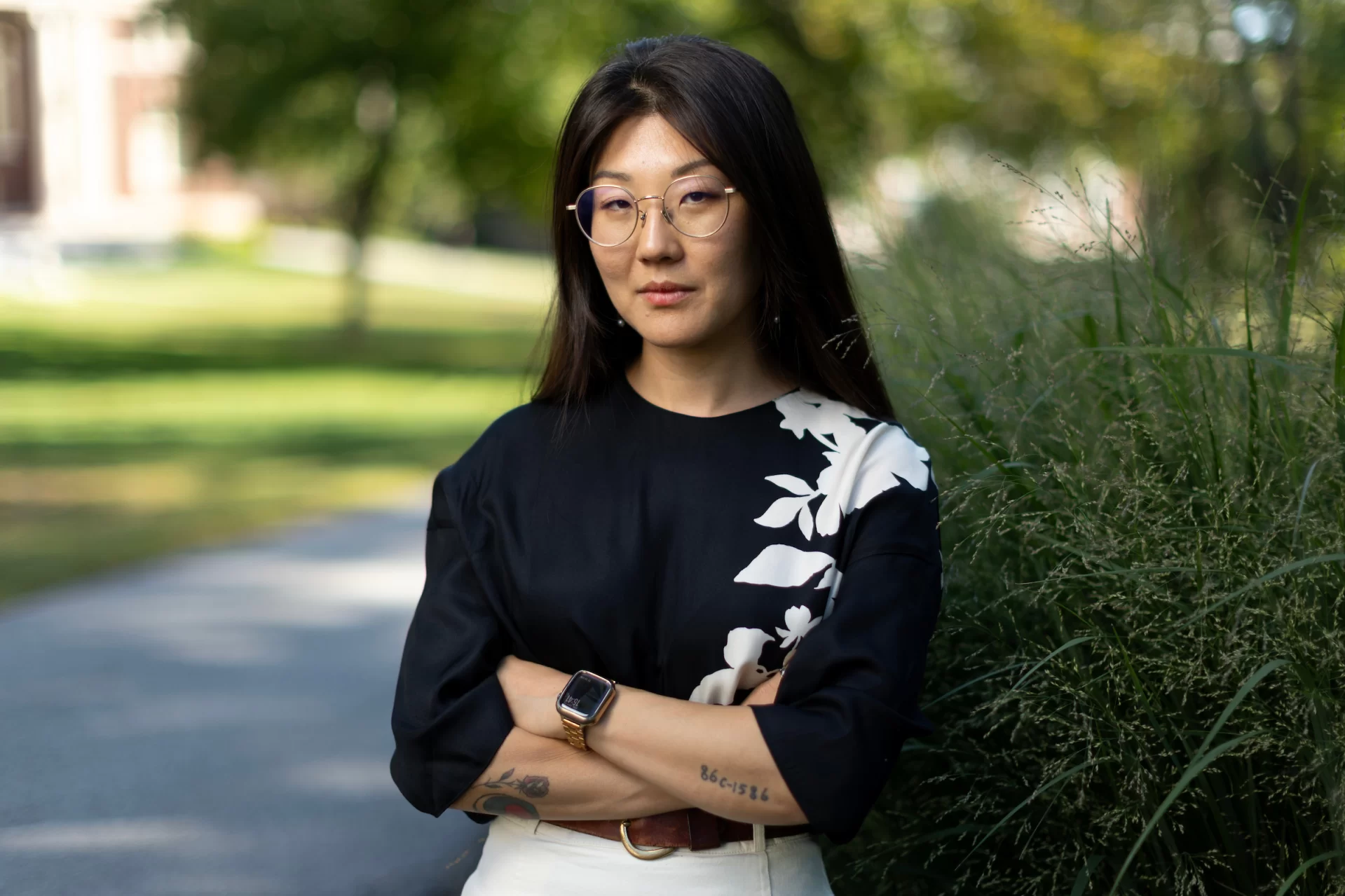
Robin B. McDowell, assistant professor of environmental studies
Focus of teaching and scholarship:
My teaching and scholarship live at the intersections of several fields (environmental history, Black studies, and art and design) that, taken together, animate the dynamic space of environmental studies. My work explores historical dimensions of environmental racism and environmental justice for Black communities in south Louisiana, inspired by years of community organizing and work as a walking tour guide in New Orleans’ French Quarter. My source base is vast — archives, oral histories, earth sciences, graphic design, and multimedia art — and I try to share as much of that material as possible in my classes.This semester, I’m teaching “Lives in Place: Introduction to Environmental Humanities” and “Free The Land: Histories of Environmental Racism in the United States.” We’re doing a ton of multimodal learning grounded in iterative design thinking. I can’t wait to develop new courses that convene in critical and creative studio models and collaborate with units across the college to not only talk about but practice interdisciplinary teaching.
What are you most looking forward to in the coming year at Bates?
To be honest … office hours! Since I did not come from a liberal arts undergraduate background, I am continually awestruck and invigorated by a campus culture in which professors and students form such rich relationships and really go on the college journey together. In just the first three weeks of teaching, I’ve discovered that I have sailors, knitters, dancers, bird call enthusiasts, photographers, and watercolor artists in class. I am excited to learn more about the full range of activities that inspire my students.
What is your favorite part of teaching?
I love when students start to “trust the process,” engage with a method, activity, or concept that seems intimidating at first, and then completely surprise themselves! We all have ideas about our place in the world, our strengths and challenges, and the contributions we’d like to make to the world. But often, even for young people, how we approach these ideas may be shaped by a more siloed understanding of learning — and teaching!
By exposing students to a vast array of methods in an inviting classroom environment, I start to hear things like, “I never thought of myself as a creative person, but collaging just unlocked ideas I never considered while reading the text!” Whether it’s discovering a writer, thinker, or maker whose work shifts their perspectives on events in their own lives, or working on a project that unlocks a perspective they never knew they could express, students remind me to never stop approaching the world with wonder and openness.
Faculty Featured
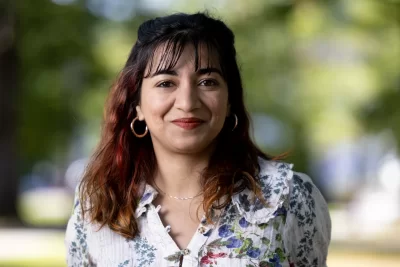
Ifrah Shahi
Assistant Professor of Biology

Anderson Moss-Weaver
Assistant Professor of Religious Studies
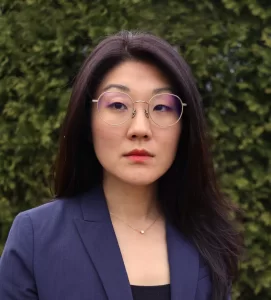
Robin B. McDowell
Assistant Professor of Environmental Studies
